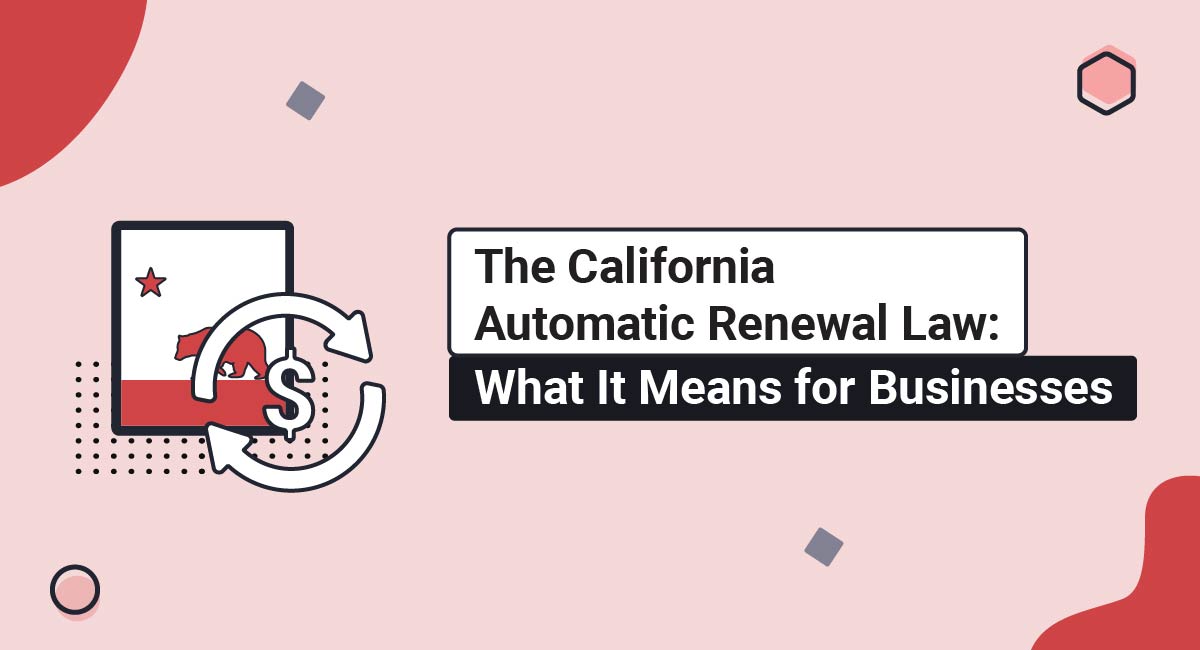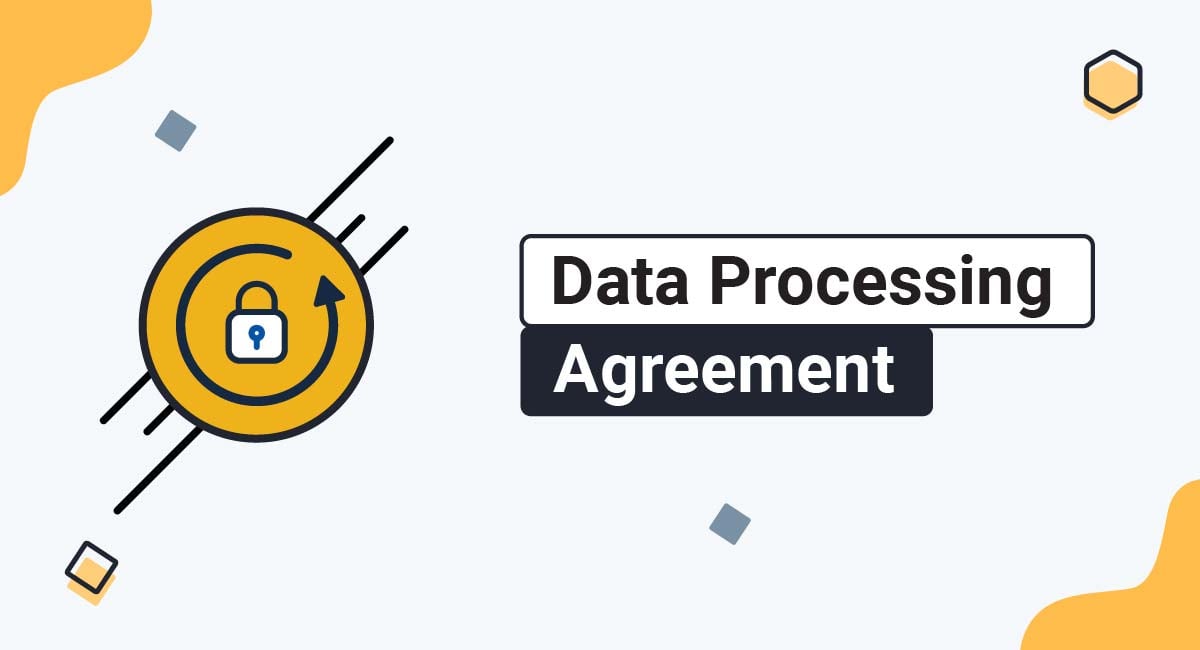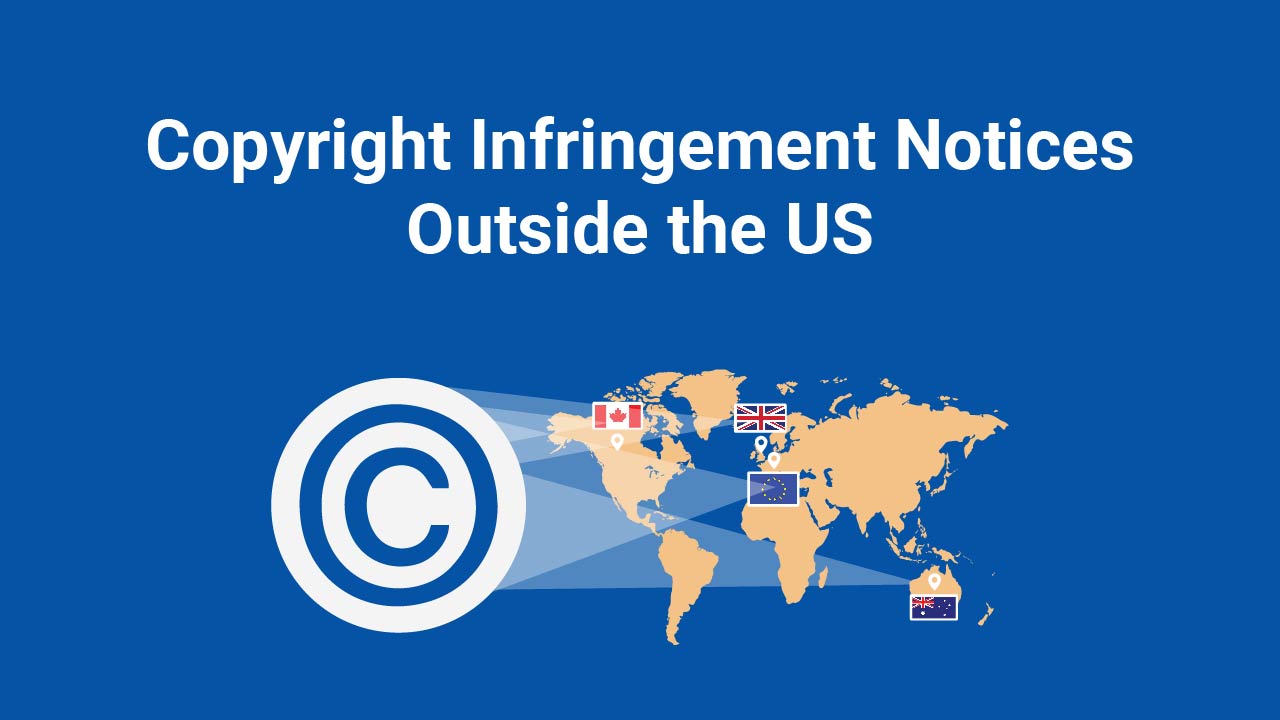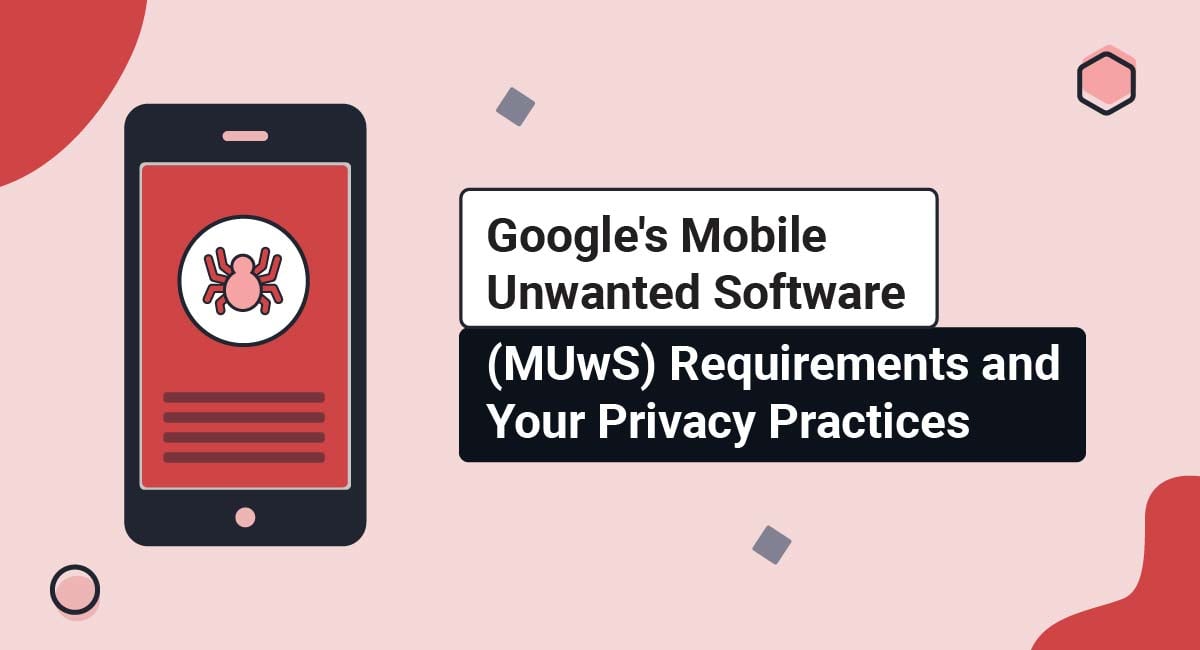California's Automatic Renewal Law (ARL) regulates businesses that sell recurring membership or subscription fees. It requires businesses to clearly disclose all recurring fees and notify customers of upcoming charges.
This article will explain what the ARL is, who it applies to, who is exempt from it, how to comply with it, and what the penalties are for not complying.
Our Terms and Conditions Generator makes it easy to create a Terms and Conditions agreement for your business. Just follow these steps:
-
At Step 1, select the Website option or the App option or both.
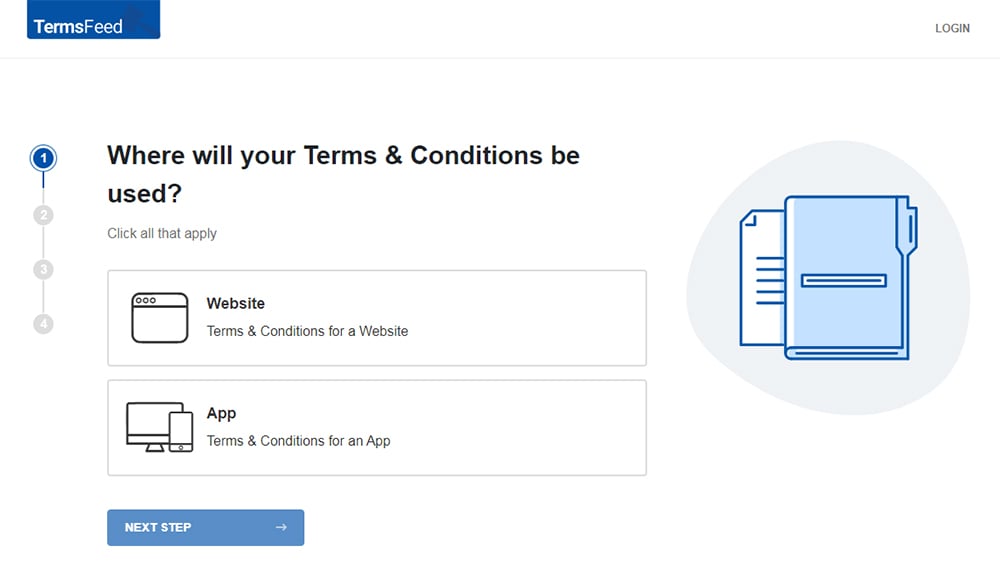
-
Answer some questions about your website or app.
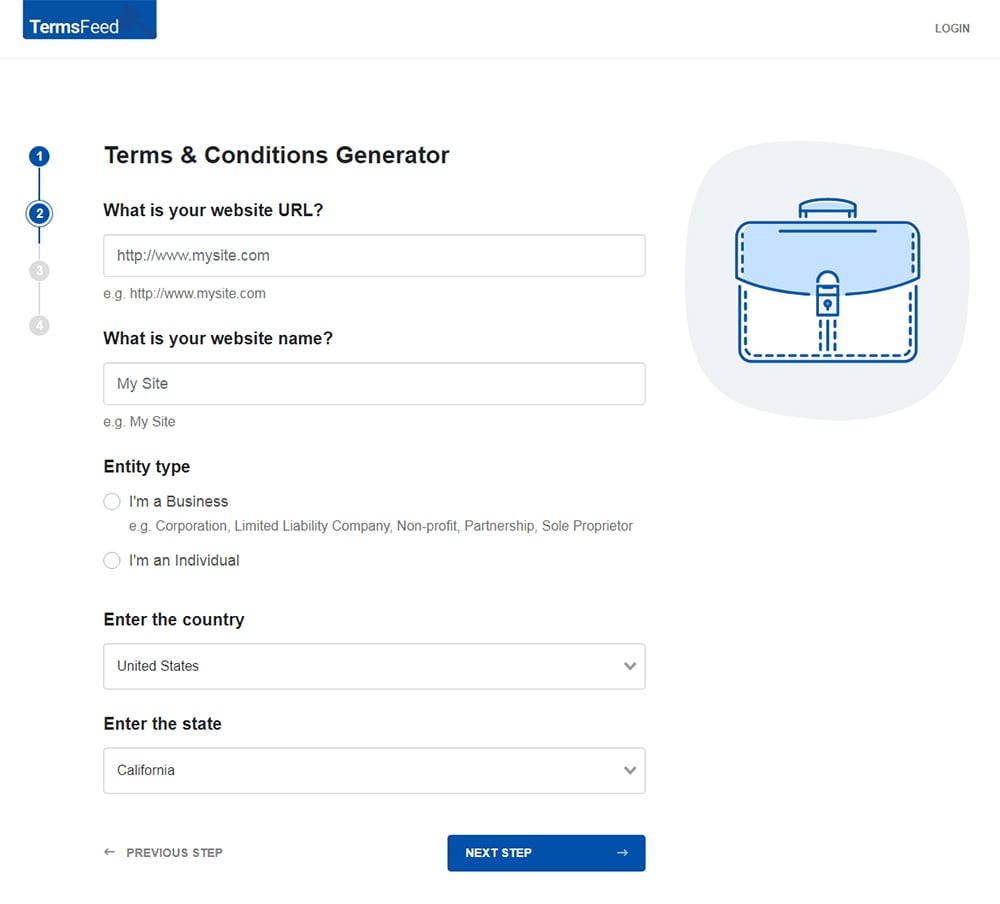
-
Answer some questions about your business.
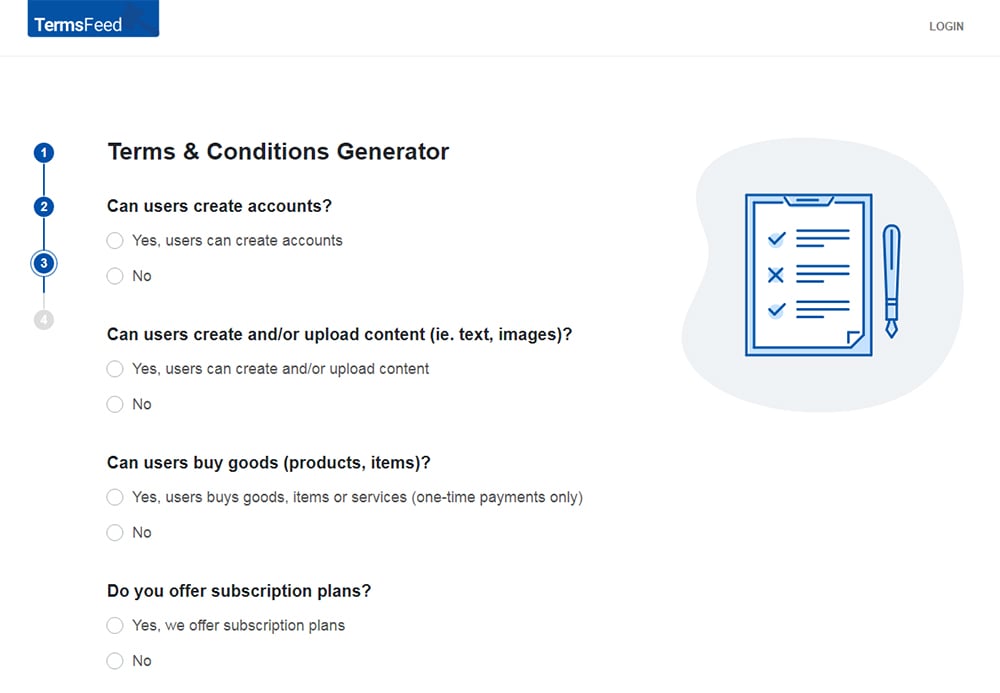
-
Enter the email address where you'd like the T&C delivered and click "Generate."
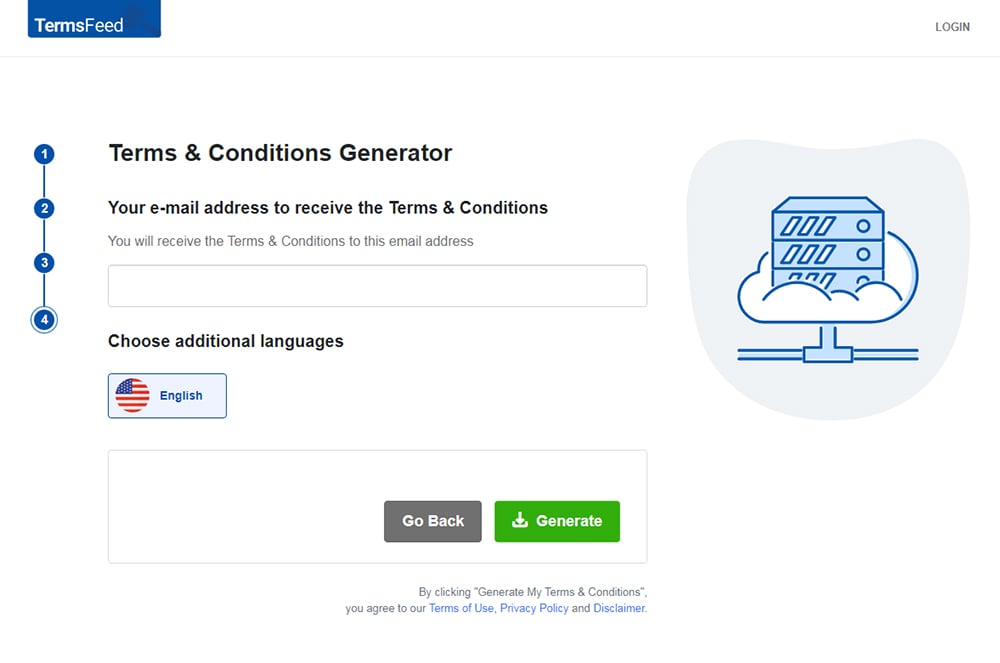
You'll be able to instantly access and download the Terms & Conditions agreement.
- 1. What is the California Automatic Renewal Law (ARL)?
- 2. Who/What Does the California Automatic Renewal Law (ARL) Apply to?
- 3. Are There Any Exceptions to the California Automatic Renewal Law (ARL)?
- 4. What Does the California Automatic Renewal Law (ARL) Require?
- 5. How Do You Comply With the California Automatic Renewal Law (ARL)?
- 5.1. Only Charge for Recurring Subscriptions With Consent
- 5.2. Send a Post-Purchase Confirmation Email
- 5.3. Remind Customers of Upcoming Renewals
- 5.4. Provide an Immediate Method for Cancellation
- 6. What are the Penalties for Not Complying With the California Automatic Renewal Law (ARL)?
- 7. Summary
What is the California Automatic Renewal Law (ARL)?
California's Automatic Renewal Law (ARL) is a law that aims to protect consumers from unwanted recurring charges. It requires companies to make it clear to customers when a charge isn't a one-time fee but rather a recurring fee.
Furthermore, it requires businesses to send out reminders about upcoming charges for subscriptions that customers signed up for a while ago. That way, people who have forgotten that they signed up for a free trial or an annual membership won't be hit with unexpected bills.
Who/What Does the California Automatic Renewal Law (ARL) Apply to?
The ARL applies to businesses and websites based in California that sell recurring subscriptions and memberships.
Are There Any Exceptions to the California Automatic Renewal Law (ARL)?
Yes, there are various exceptions to California's Automatic Renewal Law (ARL). If the membership is free (actually free, not just a free trial), and the customer won't be charged anything for it, it doesn't apply to your business.
Much of the requirements only apply to subscriptions that are sold online.
Of course, even if you sell subscriptions offline, you can't charge a customer's credit card without their consent. For example, if a customer buys something in your store with a credit card, you can't automatically add them to your paid premium membership program.
However, if a customer signs up for a recurring subscription or membership offline, and you don't collect their electronic contact details (such as email address or phone number), you don't have to send reminder notifications before their renewal date approaches.
For example, let's say your organization or non-profit has a yearly membership fee, and you only collect members' mailing addresses without keeping a record of their emails or phone numbers. Members sign up by filling out a printed form with their credit card details and send it in. Once again, your organization will be exempt from the ARL. Of course, if a customer calls and requests a cancellation, you must honor their request.
Obviously, such situations are increasingly rare in this age of digital communication.
What Does the California Automatic Renewal Law (ARL) Require?
California's Automatic Renewal Law (ARL) (Code § 17602) has several important rules, which we will discuss in further detail in this article:
- Do not charge customers' credit cards for automatic renewals without their consent
- When selling a recurring subscription, include the terms clearly and conspicuously at the point of sale
- Send a confirmation email after a customer has signed up for a recurring subscription, along with information on how to cancel their membership
- Remind customers of upcoming renewal charges before annual subscriptions renew
- Remind customers of upcoming renewal charges when a free trial period ends, if the free trial period lasts for more than 31 days
- Provide a quick and easy way for customers to cancel their subscriptions
Let's discuss these requirements in more detail.
How Do You Comply With the California Automatic Renewal Law (ARL)?
Take the following steps to ensure compliance with California's Automatic Renewal Law (ARL).
Only Charge for Recurring Subscriptions With Consent
This part of the law is pretty straightforward. You can't charge someone for a recurring subscription without their consent. In other words, don't lead the customer to think it's a one-time fee if it's a monthly fee.
However, there are additional rules to keep in mind. In addition to informing the customer that their card will be charged for automatic payments, you should also include the terms of the subscription "clearly and conspicuously."
In other words, inform the customer about:
- The cost of the subscription
- When the subscription renews
- The length of the agreement (if applicable)
- That the agreement will remain in place unless the customer cancels
- How to cancel
These terms should be visible on the purchase or checkout page in a way that's easy to see. They shouldn't be hidden in the fine print on a separate page or hard to find.
It's easier to illustrate with an example. Let's take a look at how Amazon does it on its Amazon Prime signup page:
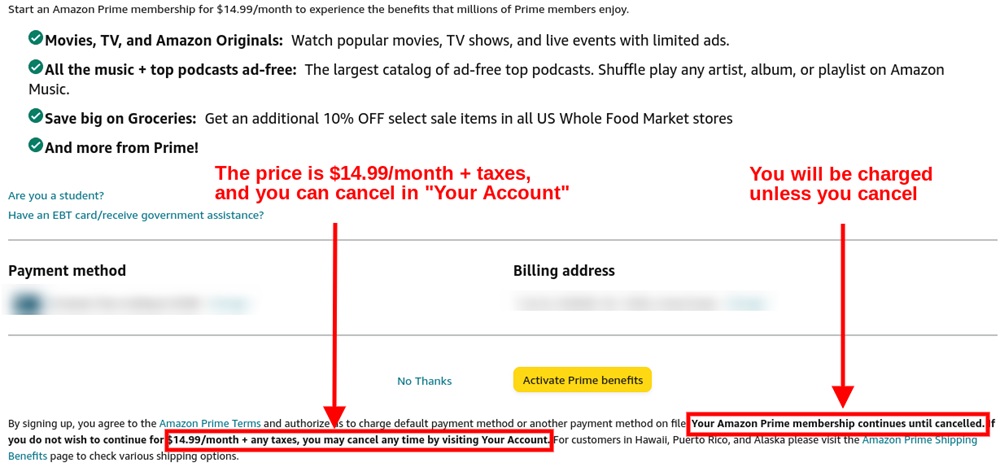
Amazon makes clear:
- That the subscription will renew unless canceled
- The cost of the subscription
- How to cancel
Send a Post-Purchase Confirmation Email
After a customer signs up for a recurring subscription, send an email confirmation that again explains the terms of the agreement and provides information on how to cancel.
If the customer signed up for a free trial, you should also send a confirmation email explaining:
- When the free trial will end
- How much the customer will be charged when it does
- How to cancel
Amazon, once again, serves as a great example of how to do this.
The following is an excerpt from an email confirmation upon signing up for an Amazon Prime trial. In this case, it was a paid trial (not a free one) at a heavily discounted rate, but the same laws apply:
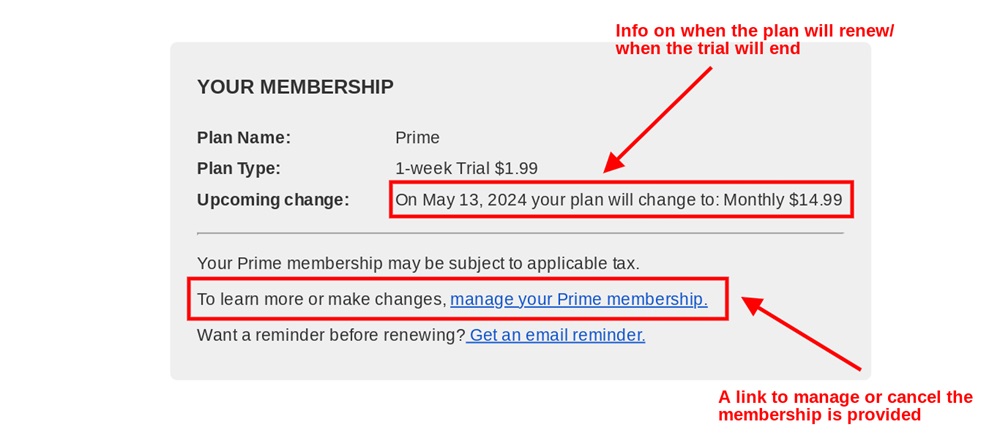
Amazon clearly defines:
- When the customer will be charged
- How much they will be charged
- How to cancel
Below that, in the footer of the email, are additional details. The footer clarifies that you will be billed until you cancel. It also clarifies Amazon's cancellation policy: If you cancel within 3 business days, you get a full refund for services you didn't use:

Remind Customers of Upcoming Renewals
On July 1, 2022, an updated version of the Automatic Renewal Law came into effect. It added the requirement to remind customers of upcoming renewals for annual subscriptions and free trials longer than 31 days.
If a customer signed up for an annual subscription (or longer), remind them of upcoming charges before the renewal date.Send this reminder 15 to 45 days before the renewal date.
It's easy to forget about subscriptions you signed up for if it's been almost a year. This law helps protect customers from getting charged for memberships they no longer want or need.
The rule also applies to trial periods that are longer than 31 days.
If a customer signed up for a two-month free trial, for example, you must remind them that their card will be charged before the renewal date. Send the reminder 3 to 21 days before the renewal date:
The reminder should include the following details:
- Remind the customer that if they don't cancel, they will be charged
- Inform the customer the amount they will be charged
- Include details about the length of the renewal period
- Provide a cancellation method and contact details
What if both conditions apply? In other words, what if your free trial lasts for more than 31 days, and the subsequent paid membership period lasts for one year?
Theoretically, in that case, you only need to send one reminder 15 to 45 days before the yearly subscription ends. You won't have to send a notification before the free trial ends.
However, it's good practice to send both notifications in the name of transparency and to avoid confusion.
Provide an Immediate Method for Cancellation
The new amended law added another important rule: that businesses make it easy for customers to cancel immediately.
What does "immediate" mean in this context?
It means that there shouldn't be obstacles or additional steps required for cancellation. For example, the customer shouldn't have to call the support team after requesting a cancellation.
Instead, there should be a cancellation button or link in the customer's account settings, profile, billing page, or member's area. Pressing this button or link should be all the customer needs to do.
Let's take a look at how Amazon does this. In the Amazon Prime dashboard, Prime members can easily cancel their subscriptions by clicking on the cancellation button under "Manage Membership" at the top of the screen:
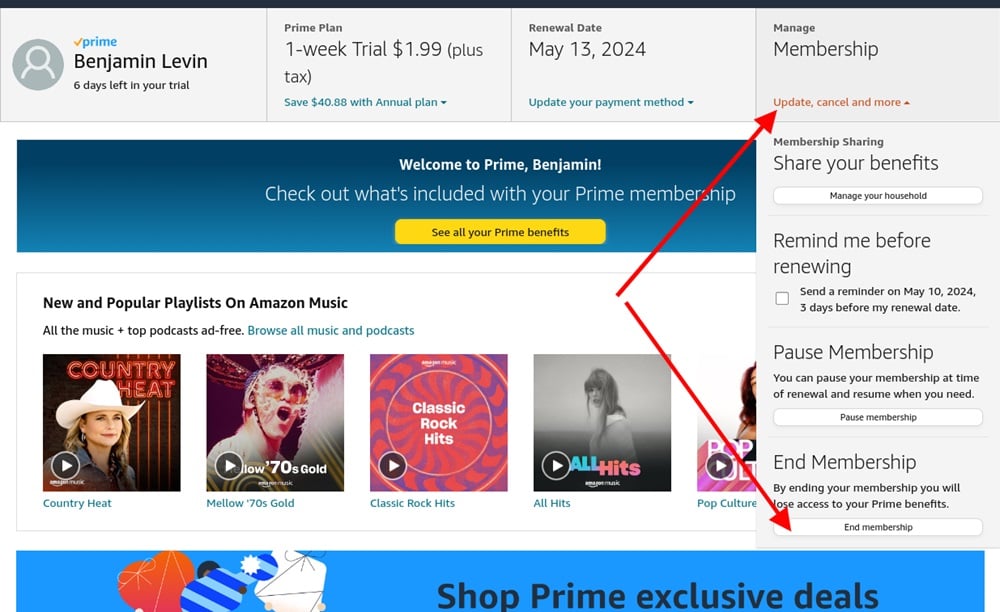
Alternatively, you can give the customer the option to send a preformatted email directly to customer support. However, the customer should not have to write this email themselves.
Instead, they should be able to click on a button or link that opens in their email web app, for example, with a preformatted message that they can send with one click.
What are the Penalties for Not Complying With the California Automatic Renewal Law (ARL)?
There are two types of penalties businesses can face for not complying with the ARL.
The first are private consumer protection suits filed by customers affected by the law. Settlement amounts for such lawsuits can vary.
In addition, businesses can face civil penalties of up to $2,500 per violation. That's per violation, so depending on how many of your customers were affected, the total penalty can be pretty high.
For example, Rihanna's company, Savage X Fenty, was ordered to pay $1 million in civil penalties in a lawsuit filed by four California counties due to failing to comply with the ARL. Those penalties did not include the restitution owed to the victims. The company's violations included not properly disclosing and obtaining consent for recurring charges.
Summary
The California Automatic Renewal Law requires businesses to obtain consent from customers before subscribing them to automatically renewing subscriptions.
Not only that, but businesses must make it clear what the charges will be, when the subscription will renew, and how the customer can cancel. This information must be displayed on the landing page or checkout page and also be sent in a separate email confirmation after the customer signs up.
In addition, you must make it easy for customers to cancel their subscriptions. This can be a button in the member's area or a link that allows them to send a preformatted email.
Finally, it requires businesses to inform customers of upcoming, recurring charges:
- 3 to 21 days before a free trial ends and the paid period starts, if the customer signed up for a free trial of 31 days or longer, or
- 15 to 45 days before the renewal date, if a customer signed for a subscription of one year or longer
Businesses are only exempt if customers do not sign up online and the business doesn't collect any electronic contact details.
Failure to comply can lead to civil penalties of up to $2,500 per violation, in addition to private consumer protection lawsuits filed by customers.

Comprehensive compliance starts with a Privacy Policy.
Comply with the law with our agreements, policies, and consent banners. Everything is included.
